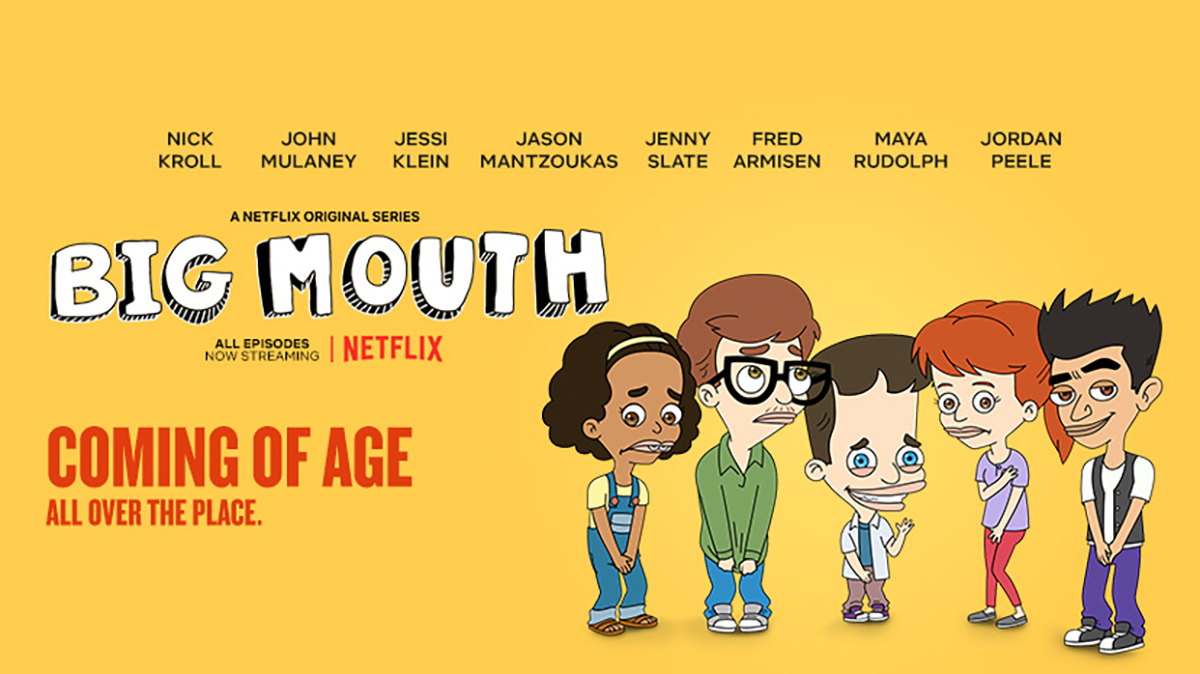Big Mouth is unlike any other adult animation show I’ve ever seen before, in the sense that it retains all the vulgarity you expect from a cast that probably grew up watching Family Guy and South Park, then pushes that boundary toward something so graphic, it could never be tolerated on cable television. Much like many of Netflix’s other teen repertoire, Big Mouth explores the sexuality of teenagers and the gruelling struggles of puberty, identity, and mental illness.
Animated genitalia is a regular and frequent occurrence on the show; masturbation, menstruation, and poop jokes are all fair game. The show’s fourth season released on Dec. 4, 2020, and while the show has garnered positive reviews since its series debut, season four had something a little more special.
The 10-episode season introduced its first trans character, Natalie, voiced by Josie Totah, a trans woman herself. It was a refreshing portrayal after the controversial introduction of Ali Wong’s pansexual character in season three. While Ali Wong’s performance is so entertaining that she returned for season four, her character’s introduction included a long-winded and harmfully incorrect explanation of pansexuality and bisexuality that ultimately led to the showrunner apologizing for “missing the mark.” Instead, Natalie’s portrayal was praised for its sensitivity, accuracy, and non-harmful jokes about what it means to be a trans teenager.
Big Mouth frequently dives into conversations that circle around social issues, including slut-shaming, hypersexualizing young girls, homophobia, biphobia, white supremacy, and male privilege. That said, the show enjoys being vulgar for the sake of being vulgar, and at times, it seems needlessly so. Just because Netflix will allow you to get away with it, doesn’t necessarily mean you should produce it. (Like Andrew masturbating at his grandfather’s funeral. Why?) While the visuals and the jokes often cross over into gross territory, the heart of the writing is what makes it so compelling to binge.
Missy, arguably the most empathetic and sincere character in the show, finally gets to explore her Black culture that was decidedly repressed by her parents, especially her white mother. For three seasons, the show largely ignored the fact they had a mixed-race main character, favouring story lines where Missy was the love interest, the nerdy, quiet girl coming to terms with her budding sexuality, or the outcast of her peers. Season four puts those storylines aside to allow Missy to explore the culture she’s been deprived of, introducing her Black cousins as new characters and giving voice to Black issues. Jenny Slate, the original voice actor, announced in June that she would be stepping down from the iconic role, insisting that a Black voice actor, Ayo Edebiri, take the reigns.
Big Mouth started off depicting the brutal changes of puberty, but its exploration of social issues and sexuality has elevated it away from the edgy humour that seems to frequent most adult animated shows. It might get messy in its delivery at times, but the writers seem earnest in their attempt to include the ugliness of growing up in all bodies.


